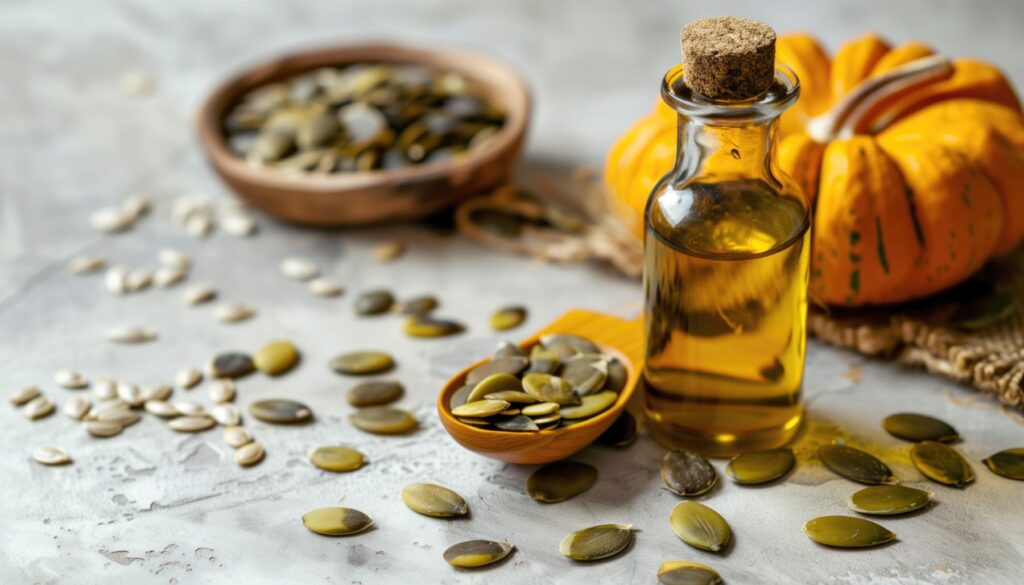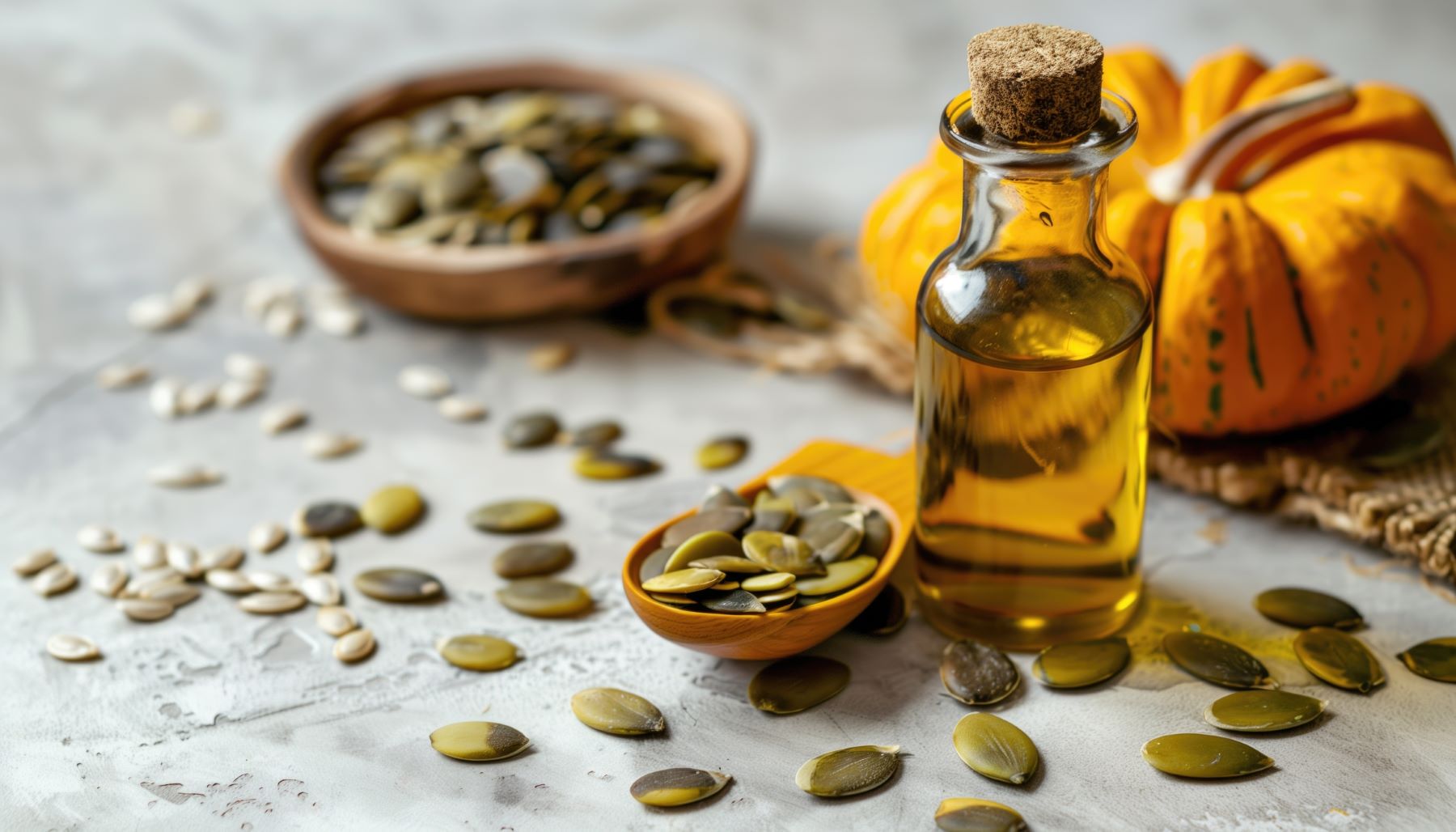
Pumpkin Seed Oil for Hair Growth: Does It Really Work?
Hair loss is a common concern affecting millions worldwide. While various treatments exist, natural remedies like pumpkin seed oil are gaining traction. This article delves into the potential benefits of pumpkin seed oil for promoting hair growth, examining the scientific evidence and practical applications.
What is Pumpkin Seed Oil?
Pumpkin seed oil, as the name suggests, is extracted from the seeds of pumpkins. Rich in essential fatty acids, vitamins, and minerals, it’s been traditionally used for various health benefits, including prostate health and skin improvement. Its potential impact on hair growth is now a subject of increasing interest.
The Science Behind Pumpkin Seed Oil and Hair Growth
The key to understanding pumpkin seed oil’s potential lies in its composition. It contains:
- Essential Fatty Acids: Linoleic acid and oleic acid, which are crucial for maintaining a healthy scalp and hair follicles. These fatty acids help nourish the hair, making it stronger and less prone to breakage.
- Phytosterols: Compounds that may help block DHT (dihydrotestosterone), a hormone linked to androgenetic alopecia (male and female pattern baldness). DHT shrinks hair follicles, leading to thinning and eventual hair loss.
- Vitamin E: An antioxidant that protects hair follicles from damage caused by free radicals. It also improves blood circulation to the scalp, promoting hair growth.
- Zinc: An essential mineral for hair tissue growth and repair. Zinc deficiency can lead to hair loss.
- Magnesium: Another vital mineral involved in protein synthesis, which is crucial for hair structure.
The combination of these nutrients suggests that pumpkin seed oil could potentially combat hair loss and stimulate hair growth.
Research and Clinical Studies
Several studies have investigated the efficacy of pumpkin seed oil for hair growth. One notable study published in the *Evidence-Based Complementary and Alternative Medicine* journal found that men with androgenetic alopecia who took 400 mg of pumpkin seed oil daily for 24 weeks experienced a significant increase in hair count compared to the placebo group. The study suggested that pumpkin seed oil’s DHT-blocking properties might contribute to its effectiveness. [See also: Understanding Androgenetic Alopecia Treatments]
Another study explored the effects of pumpkin seed oil on female pattern hair loss. While the results were less conclusive than the male pattern baldness study, some participants reported improvements in hair thickness and overall scalp health. More research is needed to fully understand the effects of pumpkin seed oil on women’s hair growth.
How to Use Pumpkin Seed Oil for Hair Growth
There are several ways to incorporate pumpkin seed oil into your hair care routine:
- Oral Supplement: Taking pumpkin seed oil capsules or softgels is a convenient way to consume it. Follow the dosage recommendations on the product label or consult with a healthcare professional.
- Topical Application: Applying pumpkin seed oil directly to the scalp can nourish the hair follicles and promote blood circulation. Massage the oil into your scalp for a few minutes and leave it on for at least 30 minutes before washing it off. You can also leave it on overnight for a more intensive treatment.
- Combine with Other Oils: Mixing pumpkin seed oil with other beneficial oils like coconut oil, rosemary oil, or lavender oil can enhance its effects. Coconut oil acts as a carrier, rosemary oil stimulates hair growth, and lavender oil has calming properties.
- Add to Shampoo or Conditioner: Adding a few drops of pumpkin seed oil to your shampoo or conditioner can provide extra nourishment and hydration to your hair.
Potential Side Effects and Precautions
Generally, pumpkin seed oil is considered safe for most people. However, some individuals may experience mild side effects such as:
- Digestive Issues: Taking pumpkin seed oil orally may cause stomach upset, diarrhea, or nausea in some people.
- Allergic Reactions: Although rare, some individuals may be allergic to pumpkins or pumpkin seed oil. If you experience itching, rash, or swelling after using pumpkin seed oil, discontinue use and seek medical attention.
- Interaction with Medications: Pumpkin seed oil may interact with certain medications, such as blood thinners. Consult with your doctor before using pumpkin seed oil if you are taking any medications.
It’s always a good idea to perform a patch test before applying pumpkin seed oil topically to ensure you don’t have an allergic reaction. Apply a small amount of oil to a discreet area of your skin and wait 24 hours to see if any irritation occurs.
Choosing the Right Pumpkin Seed Oil
When selecting pumpkin seed oil, consider the following factors:
- Cold-Pressed: Opt for cold-pressed pumpkin seed oil, as this method preserves the oil’s nutrients and beneficial compounds.
- Organic: Choose organic pumpkin seed oil to avoid exposure to pesticides and other harmful chemicals.
- Dark Glass Bottle: Pumpkin seed oil is sensitive to light and heat, so it should be stored in a dark glass bottle to prevent oxidation.
- Reputable Brand: Purchase pumpkin seed oil from a reputable brand that is known for quality and purity.
Other Natural Remedies for Hair Growth
While pumpkin seed oil shows promise for hair growth, it’s essential to consider other natural remedies that can complement its effects. These include:
- Rosemary Oil: Stimulates hair follicles and improves blood circulation to the scalp. [See also: Rosemary Oil Benefits for Hair]
- Peppermint Oil: Increases blood flow to the scalp and promotes hair growth.
- Aloe Vera: Soothes the scalp and promotes healthy hair growth.
- Onion Juice: Contains sulfur, which can strengthen hair and stimulate hair growth.
- Saw Palmetto: Another natural DHT blocker that may help prevent hair loss.
Lifestyle Factors for Healthy Hair Growth
In addition to using pumpkin seed oil and other natural remedies, adopting healthy lifestyle habits can significantly impact hair growth. These include:
- Balanced Diet: Eating a diet rich in protein, vitamins, and minerals is crucial for hair health.
- Adequate Hydration: Drinking plenty of water keeps your hair hydrated and healthy.
- Stress Management: Chronic stress can contribute to hair loss, so finding healthy ways to manage stress is essential.
- Gentle Hair Care: Avoid harsh chemicals, excessive heat styling, and tight hairstyles that can damage your hair.
Conclusion: Is Pumpkin Seed Oil Worth Trying for Hair Growth?
The evidence suggests that pumpkin seed oil may offer a natural and effective way to promote hair growth, particularly for individuals with androgenetic alopecia. Its rich nutrient profile and DHT-blocking properties make it a promising option. While more research is needed, the existing studies and anecdotal evidence are encouraging. Whether taken orally or applied topically, pumpkin seed oil can be a valuable addition to your hair care routine. Remember to choose a high-quality product and consult with a healthcare professional if you have any concerns. Incorporating pumpkin seed oil along with other healthy lifestyle habits can contribute to healthier, fuller hair. The potential benefits of pumpkin seed oil for hair growth are certainly worth exploring, and it could be the natural solution you’ve been searching for.

